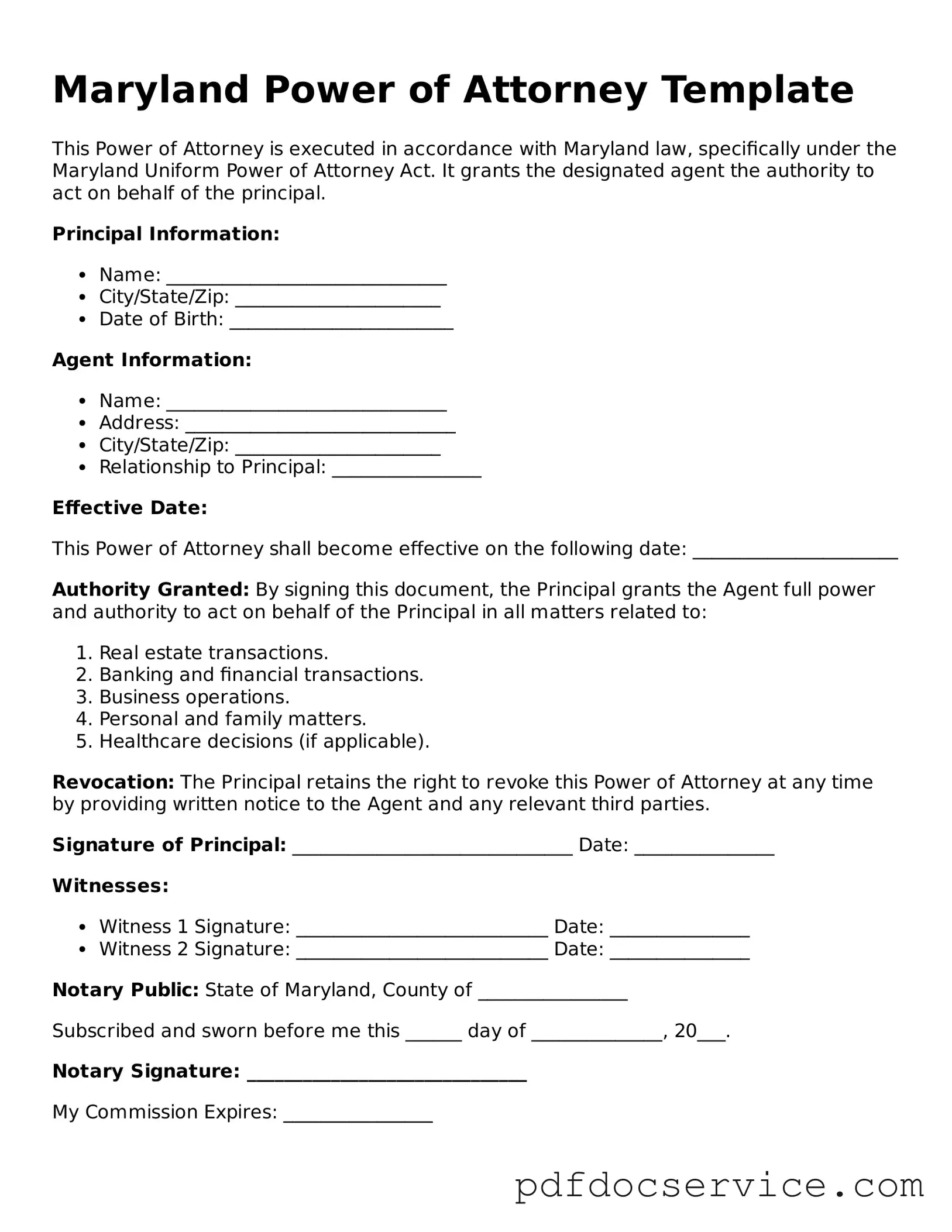What is a Power of Attorney in Maryland?
A Power of Attorney (POA) is a legal document that allows one person to act on behalf of another in legal and financial matters. In Maryland, this document can give broad or limited authority, depending on the needs of the person granting the power, known as the principal.
Who can be a principal in a Power of Attorney?
In Maryland, any adult who is of sound mind can create a Power of Attorney. This means the principal must understand the nature of the document and the powers they are granting. If someone is unable to make decisions due to mental incapacity, they cannot create a valid POA.
What types of Power of Attorney are available in Maryland?
Maryland recognizes several types of Power of Attorney, including:
-
General Power of Attorney:
This gives broad powers to the agent, allowing them to manage a wide range of affairs.
-
Limited Power of Attorney:
This restricts the agent’s powers to specific tasks or situations.
-
Durable Power of Attorney:
This remains effective even if the principal becomes incapacitated.
-
Springing Power of Attorney:
This only takes effect under certain conditions, such as the principal becoming incapacitated.
How do I create a Power of Attorney in Maryland?
To create a Power of Attorney in Maryland, follow these steps:
-
Choose a trusted person to act as your agent.
-
Decide what powers you want to grant.
-
Complete the Maryland Power of Attorney form, ensuring it meets state requirements.
-
Sign the document in the presence of a notary public.
Do I need to have my Power of Attorney notarized?
Yes, in Maryland, a Power of Attorney must be signed in front of a notary public. This step helps to verify the identity of the principal and ensures the document is legally binding.
Can I revoke a Power of Attorney in Maryland?
Yes, you can revoke a Power of Attorney at any time as long as you are mentally competent. To do this, you should create a written revocation document and notify your agent. It’s also a good idea to inform any institutions or individuals that may have relied on the original POA.
What happens if the principal becomes incapacitated?
If the principal becomes incapacitated and has a Durable Power of Attorney, the agent can continue to act on their behalf. However, if the Power of Attorney is not durable, it will become invalid upon the principal's incapacity. It's important to consider this when creating the document.
Can I use a Power of Attorney for healthcare decisions?
A standard Power of Attorney typically covers financial and legal matters. For healthcare decisions, you should create a separate document known as an Advance Directive or Healthcare Power of Attorney. This document allows someone to make medical decisions on your behalf if you are unable to do so.

